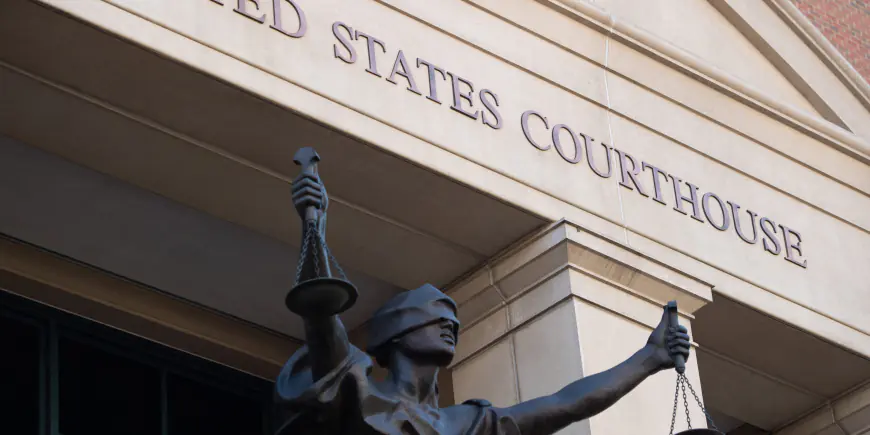Judge Reverses Decision to Release Alleged CIA Leaker Ahead of Trial
Seeking to lock up Asif Rahman during his Espionage Act trial, prosecutors alleged the CIA analyst had an ideological motive to leak. The post Judge Reverses Decision to Release Alleged CIA Leaker Ahead of Trial appeared first on The Intercept.

The CIA analyst accused of leaking top secret documents about Israel’s war plans against Iran must stay in jail ahead of trial, a federal judge said Wednesday. The judge sided with prosecutors’ claims that the analyst could make further disclosures affecting events in the turbulent Middle East if he was free before his trial on two Espionage Act counts.
“You can’t stop them from talking — and even talking is a danger here.”
U.S. District Judge Patricia Tolliver Giles’s order to hold Asif William Rahman reversed a magistrate judge’s decision last week to grant pretrial release on the grounds that Rahman could safely be released to home detention with his family.
Giles said the concern that Rahman could make further leaks — the central debate between the government and Rahman’s lawyers on Wednesday — weighed heavily on her decision. Even if he were banned from accessing electronic devices at his father’s house in suburban Maryland, Giles said, Rahman could still find other ways of distributing top secret information.
“I mean, it’s one thing to limit someone’s computer access, but you can’t stop them from talking — and even talking is a danger here,” she said. “There is no family that I would trust the safety of our community, of our national security, to.”
The decision could change the calculus for Rahman and his defense attorneys as they fight Espionage Act charges that carry long prison sentences. Defense lawyer Amy Jeffress said she would appeal the ruling.
The documents allegedly released by Rahman were analyses by the National Geospatial-Intelligence Agency, which commands powerful satellite photography capabilities, of Israel’s preparations for a strike against Iran. Israel was making the preparations as part of the widening regional war over its assault on the Gaza Strip; steadily rising tensions between Iran and Israel have led to exchanges of long-range attacks.
In court last week, a federal prosecutor said those documents’ release delayed Israel’s attack, which ultimately took place October 26.
In a shift for prosecutors, who have not previously made assertions about Rahman’s motive, Assistant U.S. Attorney Troy Edwards said Wednesday that “ideology” appeared to have spurred the CIA analyst to action.
The very fact that the documents gained widespread attention after being posted on a pro-Iranian Telegram channel suggested that Rahman was ideologically motivated, Edwards said. As evidence, he pointed to the reception that the documents drew on social media, with one user claiming that they might help halt “World War III.”
Because of Rahman’s alleged motive, Edwards said, “there is an ongoing incentive for the defendant to continue to reveal what he knows.”
“He has no access now to any information — other than what’s in his head.”
Defense lawyers said that the government does not have any proof that Rahman, if he is the leaker, could make further disclosures.
“He has no access now to any information — other than what’s in his head,” said Jeffress, Rahman’s attorney.
Jeffress also pushed back on the idea that the disclosures had an earth-shattering impact, pointing in a court filing to anonymous Israeli officials who downplayed their significance in comments to news media.
In the same brief, she pointed to another man accused of leaking classified information about an attack on Iran who has remained free: Donald Trump.
Jeffress argued that if he were jailed, Rahman would be the first alleged leaker to receive a detention order in the court district where his case is filed.
She also said that prosecutors’ supposedly bulletproof evidence that Rahman was the leaker is not as strong as they have made it out to be. Rahman was tied to the leaks by virtue of having been the only government employee to print out the documents in question, but Jeffress said it was part of his job to print such documents out for a physical briefing book at the U.S. Embassy in Cambodia, which could be accessed by others.
Rahman, clad in a green Alexandria jail jumpsuit, turned and nodded to his family as he was led out of the courtroom by security officers.
The post Judge Reverses Decision to Release Alleged CIA Leaker Ahead of Trial appeared first on The Intercept.
What's Your Reaction?










































































































